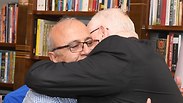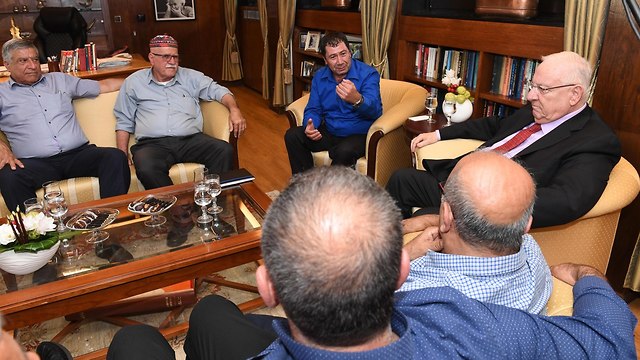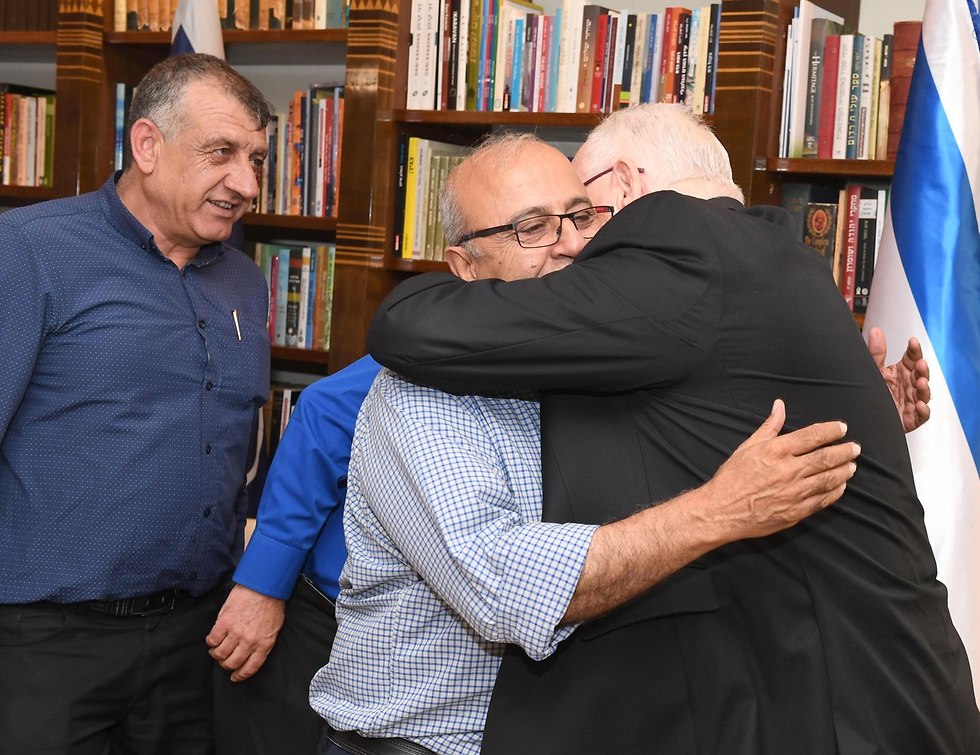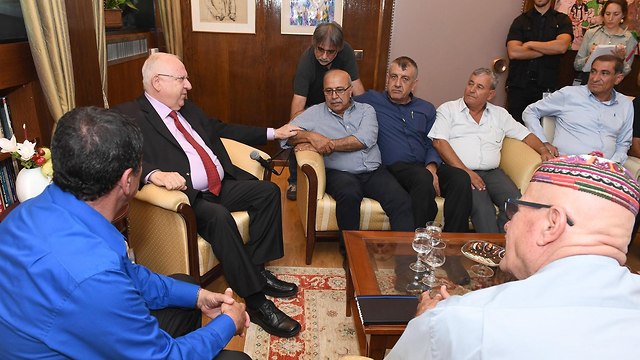

President Rivlin meets with Druze leaders
The Druze community leaders meet with President Reuven Rivlin to discuss the controversial Nationality Law which they claim discriminates against Arab speaking population in the country; Rivlin: 'It's important to feel equal'; Druze leaders: 'We will not be able to continue to live in a country where a large part of the population feels excluded.'
The Nationality Law, states that the State of Israel is the nation-state of the Jewish people and that Hebrew is the official language of the state. Arabic was defined as having a special status, with the official state use of Arabic to be determined in separate legislation.
The Druze community leaders had asked to meet the president following their meeting with Prime Minister Netanyahu on Friday.
The president greeted them at the President's Residence and reiterated his support for the community.
“The partnership between us is ingrained in the foundation of this country. This is the basis, to live in cooperation, in the country we have established … in full partnership with all those who live in this good country, which is good to everyone and we can retain this equation with no problem.
"I made my position clear during the latest round of discussions in the Knesset, when I sent a letter to expressed my opinion on the subject ... I have no doubt that you are equal to us from a legal standpoint and we must make sure that you feel equal as well,” Rivlin exclaimed.
Chairman of the Forum of Druze and Circassian Authorities and head of the Horfeish Council, Mufid Mar'i, told the president at the meeting: "What hurts the Jews hurts the Druze, and what hurts the Druze hurts the Jews. We feel the embrace and connection."
Head of the Daliyat al-Karmel Regional council, Rafik Halabi, said after the meeting that the Druze community cannot live in a country that blatantly discriminates against them.
"We expressed our concerns regarding the law, which we see as discriminatory, that does not acknowledge our citizenship, our sense of belonging and we clearly said (to the president-ed) that we want equality for everyone. We will not be able to continue to live in a country where a large part of the population—who is loyal to this country, feels excluded,” Halabi explained.
Halabi went on to say that the sentiment over the law is shared among other Arab speaking communities.
"We’ve come to you to express our pain and distress, which is felt by not only the heads of local councils, not only by the officers and religious leaders, but rather by the entire Arab and Circassian population in Israel. There are professors, hospital department heads … what will you say to them? That they are not citizens? That they are not equal? Basic legislation should apply to everyone, not only to a majority," he concluded.
The president listened to the arguments and promised to do as much as he can in order to make the feelings of the community known to the relevant authorities.
"This partnership and a sense of partnership are part of our souls," the president emphasized.
Earlier, Prime Minister Benjamin Netanyahu met with Druze spiritual leader Sheikh Mowafak Tarif at the Prime Minister's Office in Jerusalem on Friday in an effort to mend the rift between the Druze community and the State of Israel surrounding the Nationality Law.
Other prominent figures from the Druze community were also at the meeting, including Brig. Gen. (res.) Amal Asad, former Labor MK Shachiv Shnaan and Communications Minister Ayoob Kara (Likud).
No agreements have been made regarding changes to the Nationality Law, according to the Prime Minister's Office. Netanyahu and Minister Yariv Levin, who led the legislation process, don't think it's right to "open" the law at this time and make changes to it.
Instead, Netanyahu and the other officials discussed the possibility of adding to a law passed in May that sets a day in the State of Israel's official national calendar celebrating the Druze community and their contribution to the country.
Alternatively, the coalition could propose new legislation to establish the Druze community's status in the State of Israel.
In addition, the government will consider promoting legislation to give preference to Druze who serve or served in the IDF.


















